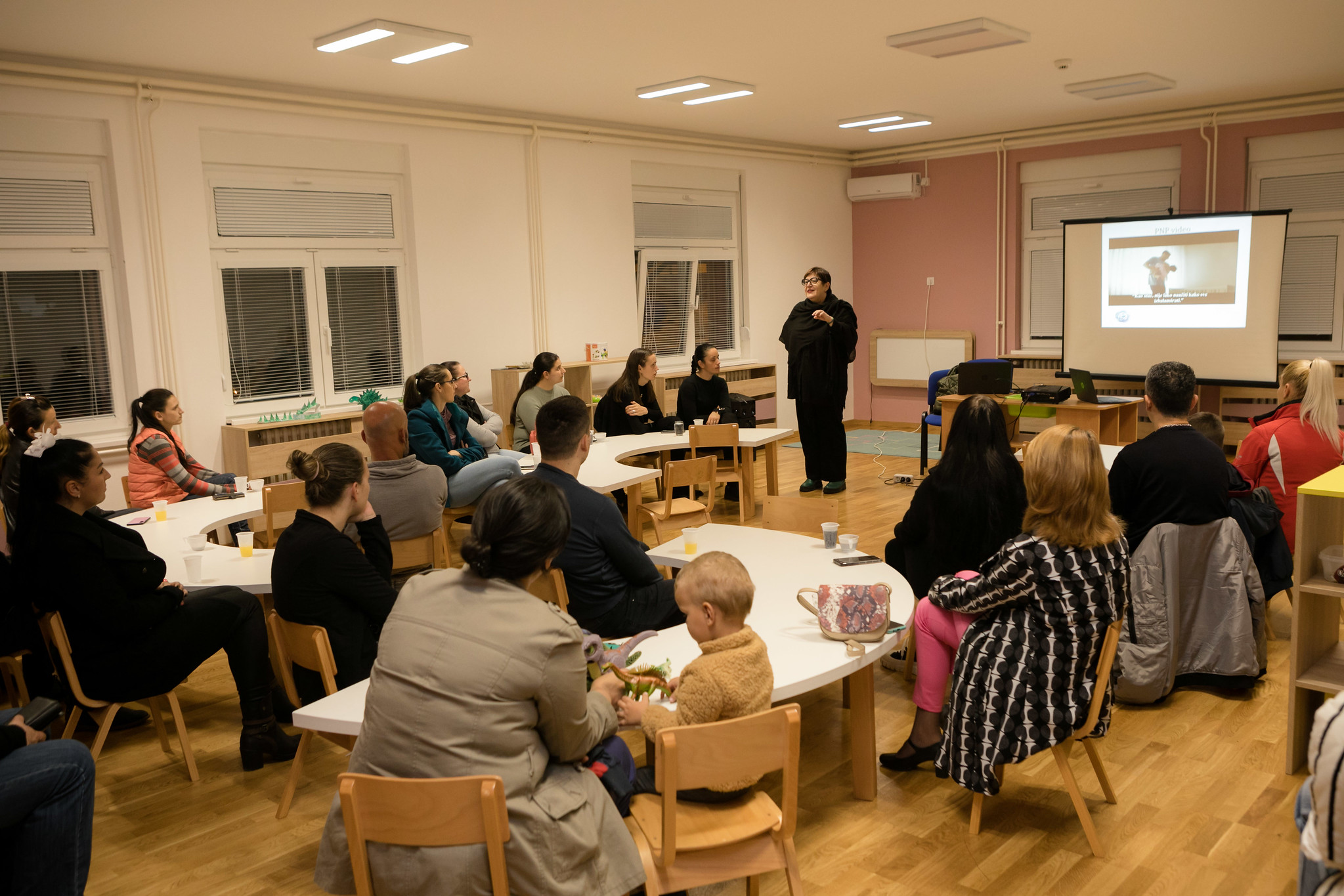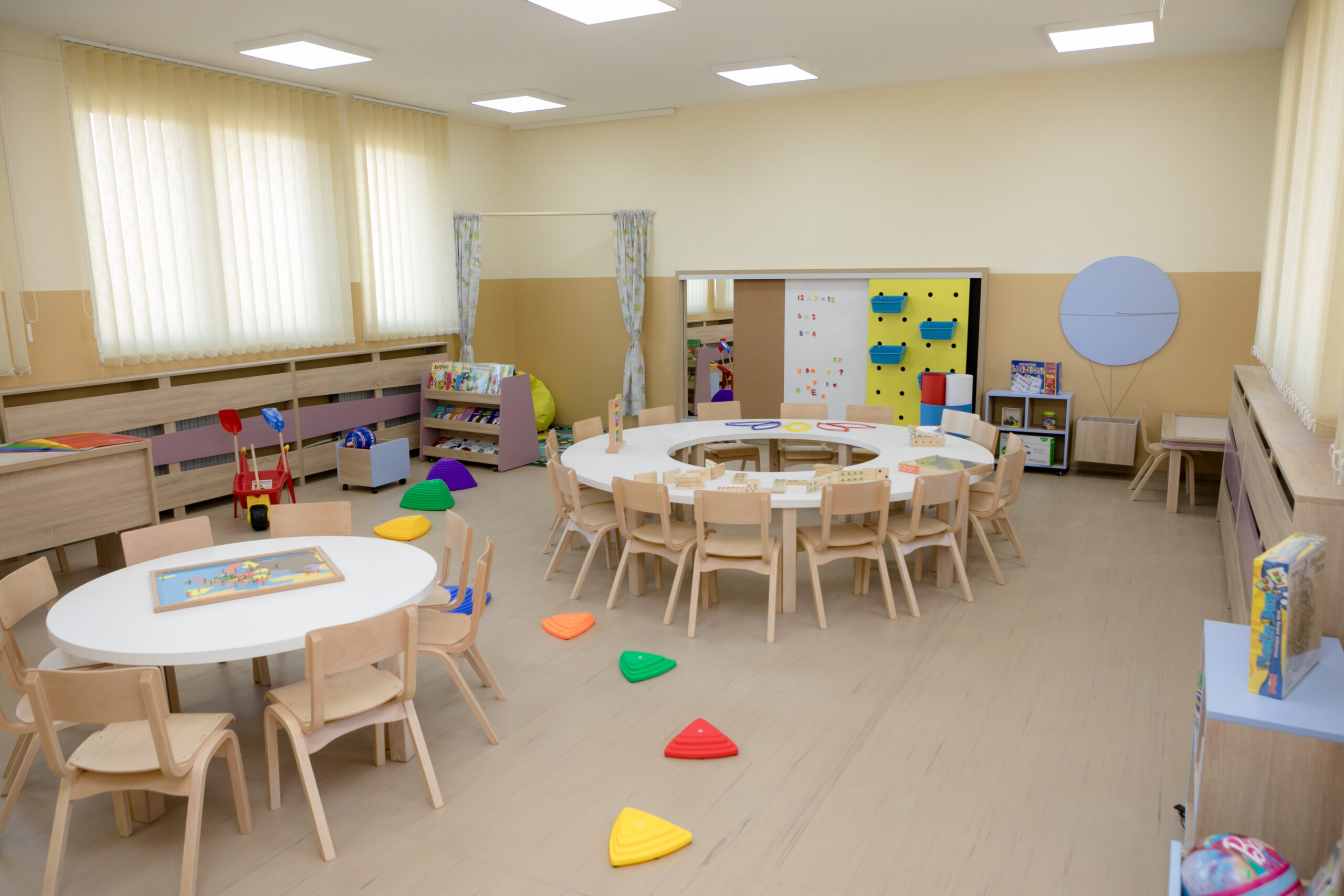There’s a meal cooking, your house is a mess, and you are tired and struggling to choose where to start. In the midst of this chaos, your child is throwing a tantrum because they want you to play with them at exactly that moment. And what about you? You wish you could break away and declare you’re not home today and you are away for a trip.
Every single one of us has been there – when, due to so much burden, we are hit faster than light by unpleasant feelings that make us often respond to our child in the way that usually makes us feel unhappy afterward. What to do in such situations? Should you take out your anger on your child and make them stay in their room until they calm down? Should you make demands and make it clear that you are the ultimate decision-maker in your home? Or should you allow your child to make decisions on their own although they are not able to follow your criteria?
And then, what to do with the headache called the feeling of guilt?
It follows you as some sort of persecutor, and it makes some people make life-long promises that they will never let anything similar happen again. But the more we swear, the more often will life prove us wrong. Hence, in the next similar situation, we usually repeat our response pattern to the unacceptable behavior of our children.
Some parents, after these reactions, apologize to their children, some even shed a tear with a bitter taste in their mouth, asking: “God, am I making a fool of myself and whose life am I playing with?”
Since nothing is easy, there comes a special spice in the form of our moms, dads, aunts, and mothers-in-law who are guests on the child’s side and who have an understanding for the child. And then, they make the situations more intricate by giving various verdicts – saying that we have lost our mind and that there is something seriously wrong with us.
It is important that we understand what is happening in our brain in these situations.
The part of the brain that processes emotions activates and the stress siren goes off. When the siren starts, a stress hormone that blocks the work of the control center at the front of the brain is released. This limits our ability to think logically and carefully about a given situation, and then we are usually unable to see the possible consequences of our actions. Instead, we act according to our instincts and have knee-jerk reactions, because we do not see the consequences.
In this state, we tend to shout, strike, spill, fall, insult, even label. In such situations, judgmental thoughts emerge:
“I refuse to be lectured by you, I am your mother and I will be making all decisions. I am the head of the house!”
“Look at this brat, he thinks he’s stronger than me. You didn’t come to this world to behave like this on me!”
What can we do in these situations?
In order to be able to listen to our own feelings and the feelings of our children in these situations and to understand the needs behind the unacceptable behavior of our child, unpleasant feelings and judgmental thoughts, we should allow our control center to operate. And our control center can only operate when our stress siren is off. So, before we react, first we need to wait for the stress siren to stop, because only in this way will we prevent ourselves from saying or doing something that we will later regret.
When we turn off the stress siren, it allows us to make decisions that are in line with the long-term goals that we have set for our child.
Judgmental thoughts intensify our anger and they in fact shape our emotions; they make us say inappropriate words and have inadequate reactions that are not in line with our long-term goals and values that we want to develop. Hence, it is important that we have a fishing rod for our thoughts and to catch them using a hook in order to be aware of these thoughts. When we catch them, and this is not an easy process because they pop up at the speed of light, we need to recognize which needs are behind these judgmental thoughts. These are the needs every parent has, and they are entirely legitimate; in most cases, these are the needs for understanding, respect, protecting our children and supporting their development. We can plan our best reaction only when we recognize our thoughts and when we discover the needs behind these thoughts.

Self-regulation techniques help us turn off the siren and restore the peace in our mind and body so that we can plan an effective reaction.
You probably think it is an impossible task. But let us encourage you – with self-regulation techniques it is possible!
When our reactions are based solely on our thoughts, anger behaves like a small fire, which quickly becomes a blaze. And when we understand the needs behind these thoughts, we open the possibility of reacting in a way that will teach our child, not train them. And I believe that you want to teach, not to train!
Self-regulation techniques help us turn off the siren and restore the peace in our mind and body so that we can plan an effective reaction.
By practicing self-regulation techniques, we tend to calm our emotional brain and after a certain period of time, we feel better and we can think more clearly and consciously.
It is important, therefore, to learn how to “chill out” in these situations, because when we “chill out”, we have time to think; then, the information in the part of our brain which is in control get settled, and then, we are able to choose a constructive mode of action.
What are self-regulation techniques?
1. Count to 10!
This self-regulation technique allows us to think instead of having a knee-jerk reaction in a given situation. When we apply this strategy, the information from the center of the brain that processes emotions is sent to the part of the brain that is in charge of rational thinking to calm down, which allows us to make a rational decision.
2. Breathe
Focus on your breathing. This helps your body relax, it slows down the heartbeat and gives you a sharper focus. Concentrating on breathing stimulates better brain function.
3. Accept your stress
Make your own stress a measurement tool, and when you find yourself in a stressful situation, mark the level of the stress. Accepting the situation you are in is the first step towards getting out of it constructively. Then, alternative ways of overcoming the situation in a constructive way usually open.
4. Turn “I have to” into “I want to”
Few things are a must in life! What do prefer? To be calm and find a way to finish what you started, while both you and your loved ones feel good in the process.
5. Say something to encourage yourself.
6. Take a break and have a cup of coffee or tea.
7. Remember your favorite song which restores all the energy you need.
8. Do some exercise – straighten your back, do a squat, and repeat this several times!
9. Go get some fresh air or take a walk
10. Scream into a pillow, hit it, and then hug the pillow.
When the storm passes, parents are usually left with a feeling of guilt because they didn’t react differently. They could have, they just didn’t practice! That’s why it’s important for parents to arm themselves with patience and to slowly but surely find their own self-regulation techniques or adopt one of those self-regulation techniques we listed, that will calm them in situations when emotions are hot.
In this manner, you will not only cool down, but you will also learn to regulate your temperature in the heat of the moment. You will feel better as a parent, and you will not feel the need to cry over spilled milk. I think milk is better used to make ice cream!
Smiljana Grujic is a psychologist and psychotherapist dedicated to education and a program manager for the Novak Djokovic Foundation. The focus of her work is compassionate communication and emotions management.
Smiljana is the coordinator of the “Support, not Perfection” program that supports parents who have children 0-6 years old.

















